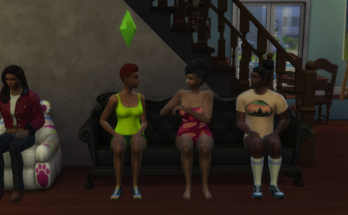“An object whose form installs delays in sampling and syndication and whose content demands postponed gratification, the book mobilizes the gap of mediacy so as to stimulate thought. E-books and articles as well as blog posts on theoretical topics are conscientious ways to store and share ideas. But these benefits come at a cost: we pay with attention.” (Jodi Dean, Blog Theory)
Jodi Dean’s compelling read theorizes how “communicative capitalism,” built upon contemporary new media practices, refashions the productive possibilities of reflexivity, the gaze, participation, and communication to produce a sort of “whatever” democracy that profits capitalists over their willing user/citizens. Her writing on the blog’s (and new media’s) emphasis on the fact, volume, and reiteration of expression over its content or author seems right on to me in regards to the majority of user-generated content on today’s web. And yet, that’s not what I’m doing here, on this blog, part of that web, which leads me to challenge less Dean’s findings (her content) and instead, her form, thereby asking her to account for the place of blogs in relation to books and also new media “theory.”
Of course, I’m not telling her anything she doesn’t already know. She begins: “a book that makes critical-theoretical claims about blogging thus encounters a double problem of its object and its form of presentation.” But as she so strongly attests, reflexivity about communicativity is no longer any sort of critical out. Which is to say, just ’cause she names her formal quandary up front doesn’t mean she’s solved it. ” My wager is that critical media theory is possible in a book form,” she decides.
Sure. By why not a blog, or many blog posts, instead of a book? Dean says that it is a matter of attention, and I’d agree. When I lecture on my video-book, my much-repeated aphorism is to challenge its readers to “devote to it the undivided attention they’d be willing to give to a movie”: 90-minutes of focused attention. I do so because Google Analytics tells me that the average time on the “video-book” is around three minutes, and I know that whatever its or my limitations, there is more than three minutes of argument and theory to be had there. But more so, I have structured much of the argument into the very form of the “book” (something much harder to do on paper in codex, at least if your subject is new media), and if you don’t experience it, ride it, play with it, much of its “theory” about experience, duration, interactivity, montage, and learning online goes unlearned.
If theory is something akin to a structured set of principles that explain and clarify other systems, there is nothing inherent to “theory” taking the form of either words or books. And as Dean attests, there is something quite expressively and intellectually useful when theory’s form is aligned with its object. However, if “theory” is something academics do to legitimize and authorize the seriousness of our labors, or the qualifications needed for our practices, or the nature of our interlocutors or judges, then it makes much more sense to do this in a book given both our needs as workers to be recognized, evaluated, and promoted, and in regards to our skill-set as workers trained to write with words for readers trained to read them. However, Dean wants to say that the issue is the book’s special quality of “postponed gratification,” seemingly in relation to the Internet’s over-abundant, over-indulgent, loose, fleeting and light little pleasures. “The forms of theory’s presentation likewise highlights how communicative capitalism fragments thoughts into ever smaller bits.”
We’re back to Lanier‘s dreaded bits and Lovink’s beloved books. Hey, I like books as much as the next professor! I often also say that Learning from YouTube is a plea for the long-form written in the short-form: how good (or real) a professor can you actually be if you’re writing your complicated thoughts in sentences? But there are other long forms, and serious ways of expression outside the book, and as we all know, the Internet is a prime container and transmitter of these lengthy objects, too.
While the majority of users may have been easily convinced to use the Internet towards fleeting, addictive, anxious, reiterative expression there is ample room for other uses and users, and theory that does not attend to this misses the whole, but more critically, theory that doesn’t speak here gives up on the Internet while we still may just have time to lay claim to other practices in this ever-narrowing place.

